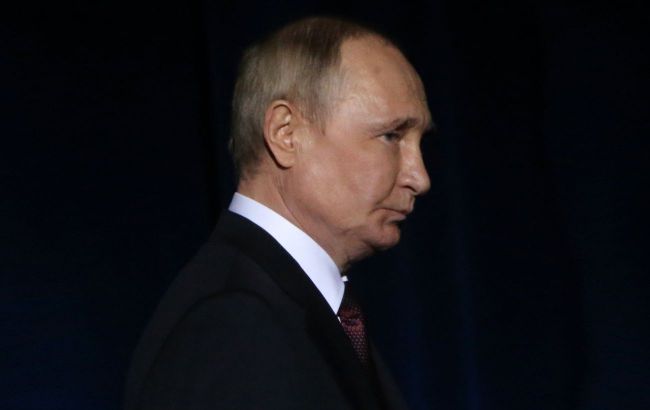Burevestnik hits 14,000 km: Putin flaunts nuclear missile test
 Photo: Russian dictator Vladimir Putin (GettyImages)
Photo: Russian dictator Vladimir Putin (GettyImages)
Russian dictator Vladimir Putin visited one of the command posts of the joint military group. During the visit, the main topic was a report on the allegedly "successful" test of a nuclear missile, according to Russian media.
At the meeting, Chief of the Russian General Staff Valery Gerasimov briefed Putin on "achievements on the front" and the results of strategic offensive forces’ exercises. Particular attention was given to tests of advanced weapon systems.
According to Gerasimov, on October 21, a cruise missile with a nuclear power unit, Burevestnik, was tested, reportedly covering about 14,000 km. The Russian General Staff claims this is "not the limit" of its capabilities.
Putin called Burevestnik a "unique model, unlike anything else in the world" and stated that the missile allegedly demonstrated the ability to bypass missile defense systems. At the same time, he acknowledged that significant work is still required to deploy this weapon in active service.
"We need to determine possible ways to use it and begin preparing the infrastructure to deploy this weapon in our armed forces," Putin said.
What is known about Burevestnik
It is worth noting that there is currently no official confirmation of the missile test. However, as early as this summer, Reuters cited researchers and sources saying that Russia might be preparing for it.
According to sources, satellite images show active activity at the Pankovo test site on the Novaya Zemlya archipelago in the Barents Sea.
Putin has repeatedly praised the nuclear Burevestnik missile (NATO designation – SSC-X-9 Skyfall), calling it "invulnerable" to any current and even prospective missile defense systems. According to him, the missile can allegedly travel almost unlimited distances and change its flight trajectory, making interception difficult.
Arms control experts note that the Kremlin’s interest in Burevestnik increased after the US announced the creation of a new missile defense shield, Golden Dome, in January. Moscow likely sees this project as a threat to its strategic advantage and views Burevestnik as a nuclear deterrent.
At the same time, many analysts doubt the missile’s actual effectiveness. They emphasize that it does not provide Russia with new military advantages compared to its existing nuclear arsenal and could even pose a risk to Russia itself, as it may potentially emit radiation during flight.
According to the Nuclear Threat Initiative, the Burevestnik tests were accompanied by multiple failures: out of 13 known launches, only two were considered partially successful. This raises doubts not only about its combat effectiveness but also its technical reliability.
Despite Putin’s October 2023 claim of the "latest successful test," the missile has not yet been adopted into service.
For more details about this weapon, see the full RBC-Ukraine report.

